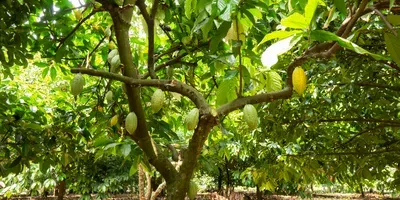Worldwide demand for food from the tropics that meets higher environmental and social standards has risen sharply in recent years. Consumers often have to make ethically questionable decisions: products may be available to the global market through child labor, starvation wages or environmental destruction.
Building on an interdisciplinary project in Peru, an international research team with the participation of the University of Göttingen has now published an overview article on the transition to responsible, high-quality cocoa production. Chocolate is made from cocoa beans, and because cocoa is originally from Peru, using indigenous varieties means a premium price can be charged. A large cooperative for small-holder farmers in northern Peru stands for social and ecological improvements with the help of organic and fair-trade certification, as well as the cultivation of native varieties in species-rich cocoa agroforestry systems. The work was published as a "Perspective" article in the journal Trends in Ecology and Evolution.

Shade trees in traditional cocoa agroforestry systems improve conditions for cocoa growth and promote biodiversity, for instance of birds. However, these trees are increasingly being removed to increase productivity, even though moderate, partial shade does not significantly reduce productivity. In addition, proven high-yielding varieties are imported, although there are unique indigenous varieties in Peru that may be associated with a particular trade advantage. The researchers' project group is working together with the cooperative Norandino Ltda. in Piura, northern Peru, which is committed to working towards developing high social and ecological standards. It represents 5,400 smallholder farmers and stands for sustainable production that pursues both ecological and economic goals. Furthermore, the cooperative is committed to fighting all forms of discrimination. The result is ecologically certified and fair-trade chocolate of a high standard, which achieves up to twice the regular market price, protects smallholder farmers against market fluctuations and moves towards the greater use of local cocoa bean varieties in the future.
Dr. Bea Maas, first author of the article and now at the University of Vienna, emphasizes: "Large cooperatives that stand for high social, economic and ecological standards in production should receive more support."
Carolina Ocampo-Ariza and professor Teja Tscharntke from the Agroecology group at the University of Göttingen add: "Such exemplary initiatives that benefit the livelihoods of smallholder farmers while maximizing nature conservation should be the focus of interdisciplinary research now more than ever before."
- This press release was originally published on the University of Göttingen website











